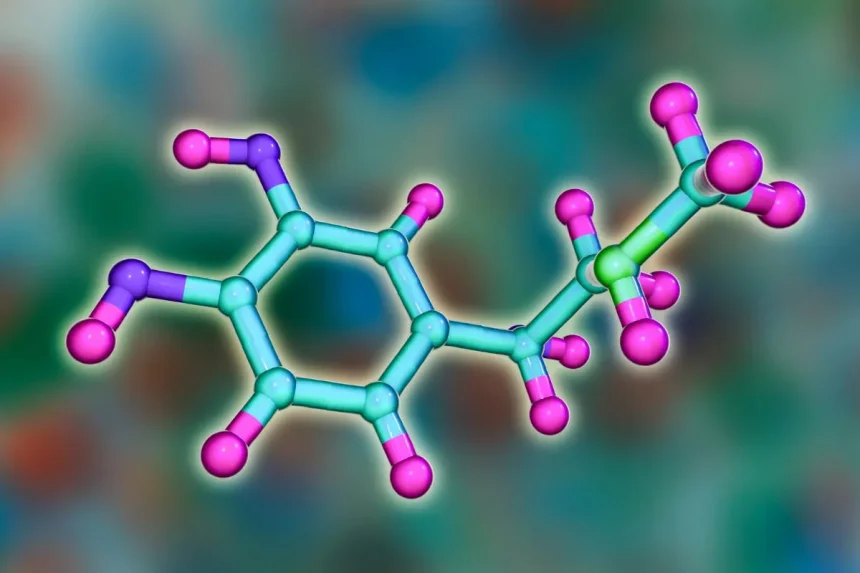Introduction
Oxytocin, often dubbed the “love hormone,” plays a crucial role in our emotional lives and social behaviors. From fostering bonds between parents and their children to strengthening romantic relationships, this powerful hormone is integral to how we connect with others. In this article, we’ll explore the science behind oxytocin, its effects on emotions and relationships, and how it impacts our overall well-being.
What is Oxytocin?
Oxytocin is a hormone and neurotransmitter produced in the hypothalamus and released by the pituitary gland. While it is widely known as the “love hormone,” its functions extend far beyond romance. Oxytocin is involved in childbirth, breastfeeding, social bonding, and even stress regulation. This hormone helps us form connections, trust others, and respond to social cues, making it a cornerstone of human interaction.
How Oxytocin Shapes Emotions
- Promotes Bonding and Trust: Oxytocin fosters trust and closeness in relationships, from parent-child connections to friendships and romantic partnerships. This hormone enhances emotional bonding, making people feel more connected and secure with one another.
- Reduces Stress and Anxiety: Oxytocin has calming effects on the body. It reduces cortisol levels, which is the hormone associated with stress. By soothing the nervous system, oxytocin can alleviate anxiety, improve mood, and even enhance resilience during challenging times.
- Enhances Empathy and Compassion: People with higher oxytocin levels tend to exhibit more empathetic and compassionate behavior. This hormone helps us understand and respond to the emotions of others, fostering a sense of community and support.
- Influences Social Recognition and Memory: Oxytocin plays a critical role in social recognition, helping us remember faces and understand social signals. This ability is vital for forming and maintaining relationships.
Oxytocin and Relationships
- Romantic Bonds: Oxytocin is often called the “cuddle hormone” because it is released during physical touch, such as hugging, kissing, and intimate moments. In romantic relationships, oxytocin strengthens emotional and physical connections, enhancing feelings of attachment and loyalty.
- Parent-Child Connection: During childbirth, oxytocin helps trigger uterine contractions and facilitates breastfeeding. It also enhances the bond between mother and child, promoting nurturing behaviors and emotional closeness.
- Friendships and Social Networks: Beyond familial and romantic bonds, oxytocin is essential in building friendships and social networks. It encourages cooperative behavior, helps resolve conflicts, and fosters a sense of belonging within a group.
Factors That Influence Oxytocin Levels
- Physical Touch: Simple acts of physical touch, like hugging or holding hands, can trigger the release of oxytocin, enhancing emotional bonds.
- Positive Social Interactions: Engaging in positive social interactions, such as having a meaningful conversation or spending quality time with loved ones, can boost oxytocin levels.
- Exercise and Meditation: Physical activities and mindfulness practices, like yoga and meditation, can also elevate oxytocin, contributing to a sense of well-being.
- Healthy Diet: Some studies suggest that certain foods, such as dark chocolate and bananas, may influence oxytocin release, promoting mood improvement and emotional health.
Potential Therapeutic Uses of Oxytocin
Researchers are exploring the potential therapeutic applications of oxytocin for various mental health conditions, such as depression, anxiety, and autism spectrum disorders. Although more studies are needed, oxytocin’s ability to enhance social functioning and reduce anxiety could make it a valuable tool in future treatments.
Conclusion
Oxytocin is more than just a hormone of love and bonding; it’s a fundamental part of our emotional lives. Understanding how oxytocin works can help us appreciate the power of human connection and the biological underpinnings that shape our social behaviors. Whether fostering trust, reducing stress, or enhancing empathy, oxytocin continues to play a pivotal role in how we relate to others and navigate our emotional worlds.
Get more info: https://www.timelinetale.com/







